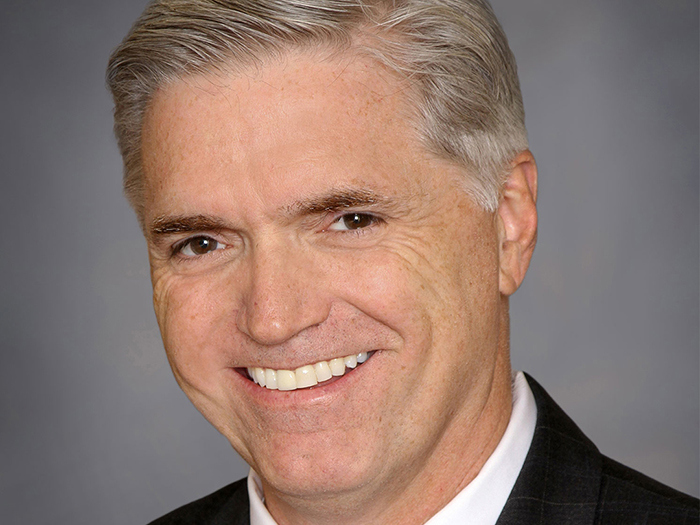Sponsored Content by BHSI
4 Critical Employment Practices and Fiduciary Legal and Regulatory Risks

Companies of all sizes may be surprised at the ongoing hardening of the employment practices liability (EPL) and fiduciary insurance markets.
For the past few years, terms have been tightening, limits have been reduced and retentions have gone up. All this, largely due to a society that is more litigious than ever and aggressive plaintiffs’ bars.
“Premiums are going up, but not as dramatically as the retentions in these cases,” said Rhonda Prussack, senior vice president and head of fiduciary and employment practices liability at Berkshire Hathaway Specialty Insurance.
“In order to stay profitable, insurers really have to respond to what’s going on with the more aggressive plaintiffs’ bars and with all these new regulations.”
Consequently, it’s more important than ever that insureds are paying attention to any legal and regulatory actions that could affect their coverages as they prepare for increased underwriting scrutiny. Here are four to keep an eye on.
1) COVID Litigation

Rhonda Prussack, Senior Vice President and Head of Fiduciary and Employment Practices Liability, Berkshire Hathaway Specialty Insurance
Employment practices liability insurance lines are feeling the pain of COVID litigation.
“We initially thought that COVID would produce a lot of litigation, and it has,” Prussack said. “People are alleging that they’ve been discriminated against.”
A wide range of COVID mandates and policies could lead to EPL lawsuits.
Employees may sue over vaccine mandates, mask mandates or return-to-office policies if they feel they have disabilities that are not being accommodated after months of proving they can work remotely.
Health care, manufacturing and retail organizations are seeing the most lawsuits, but they can occur in any sector, Prussack said.
Underwriters are already eyeing these exposures, so it’s important for insureds to be prepared to address what they’re doing to manage these risks before renewal.
“You’ll see specific questions around COVID, around return-to-work practices, and whether those practices or the protocols have been reviewed by an employment attorney,” Prussack said.
2) Wage Transparency Laws
A number of states and cities have passed wage transparency laws over the past few years.
These laws require employers to be upfront about salary during the hiring process and can be broken into two categories: those that require salary disclosure upon request and those that require employers disclose it proactively.
California was the first state to enact a wage transparency law in 2018, when it passed a law requiring employers to provide a pay scale to external applicants, upon request, if they had completed an initial interview for a job.
Maryland, and the cities Toledo and Cincinnati enacted similar laws soon after and Washington state enacted an expanded law that requires employers to provide a pay scale to internal and external applicants upon request.
In 2021, several more states enacted their own pay transparency laws, with Colorado, Connecticut, Nevada and Rhode Island passing laws that require employers to proactively disclose pay scales. Colorado’s law even requires employers to post it in the job listing.
New York City is also putting a law on the books that requires employers to give a pay scale range in every job posting.
These laws open employers up to the risk of discrimination lawsuits if, for example, a woman finds out she is being paid less than a man for similar work.
“This will ultimately lead to more litigation as employees learn what their value is at a company, and learn what people are being paid for similar work,” Prussack said.
3) Biometric Privacy
Back in 2008, Illinois passed a law called the Biometric Information Privacy Act (BIPA), which prohibits companies from collecting biometric data —like fingerprints, iris scans or facial recognition — unless they obtain written consent.
Since then, companies have been at increased risk of class-action lawsuits from consumers — and potentially even from their own employees — alleging that they collected biometric data without proper disclosures or without obtaining proper consent.
Prussack said there have been about 1,000 lawsuits that have come out of Illinois’ law alone, so far. Now other states are considering whether to pass similar legislation.
“More and more states are considering similar laws with private rights of action,” Prussack said.
The risk of lawsuits as biometric technology has proliferated is now so high that many insurers are excluding it from their EPLI policies.
“With respect to those privacy regulations, like Illinois’ BIPA, exclusions for that are quite common now across the industry,” Prussack said.
Employers can try to stay ahead of these risks by ensuring they are in compliance with the laws in the most restrictive states. Right now, that means ensuring they’re in compliance with Illinois’ law.
“It’s probably a good idea to try, regardless of where you’re headquartered or where your employees are, to make sure you’re in adherence with more restrictive laws,” Prussack said.
4) Fee Cases
On the fiduciary end, fee cases remain problematic for employers. In these class action suits, plaintiffs allege that their 401(k), or in the case of nonprofits 403 (b), have been charged unnecessarily expensive fees.
“Those fees, the plaintiffs allege, cause employees to have less available in their accounts for retirement,” Prussack said.
In the past, these lawsuits have focused on retirement plans with more than $1 billion in assets, but Prussack said that plaintiffs are going after increasingly smaller plans. She’s seen suits targeting plans with less than $100 million in assets.
“They’re going after smaller and smaller plans,” Prussack said. “Now, the sweet spot for the litigation seems to be in plans with $100 million in assets or more, but just recently, a plan with less than $70 million in assets was sued.”
When It Comes to Insurance Partners, Transparency Is Key
Given these critical risks and a challenging fiduciary and employment liability insurance market, it’s imperative that companies partner with a carrier that is transparent about their policies and claims process.
Berkshire Hathaway Specialty Insurance prides itself on its transparency through all stages of the claims process. The first step? Making sure insureds understand their policy language. “We will freely discuss the policy and talk about our intent in the language,” Prussack said.
This dedication stems from Berkshire Hathaway Specialty Insurance’s mission of putting claims first. Their claims team will work with insureds every step of the way to make sure they understand the process. Team members are constantly meeting with customers to ensure a smooth process.
“Our motto is: ‘Claims is our product.’ And we really live that every day,” Prussack said. “Our claims folks are always meeting with our customers. There’s this high level of confidence and comfort with how we’re going to handle a claim.”
For more information, please visit: https://bhspecialty.com/.
This article was produced by the R&I Brand Studio, a unit of the advertising department of Risk & Insurance, in collaboration with Berkshire Hathaway Specialty Insurance. The editorial staff of Risk & Insurance had no role in its preparation.
The information contained herein is for general informational purposes only and does not constitute an offer to sell or a solicitation of an offer to buy any product or service. Any description set forth herein does not include all policy terms, conditions and exclusions. Please refer to the actual policy for complete details of coverage and exclusions.








